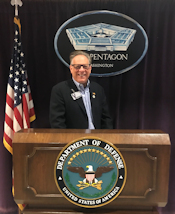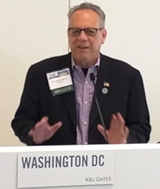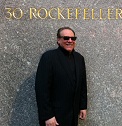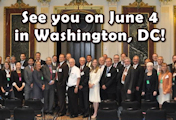NanoBusiness Recommends NIST Survey Participation
Posted on May 3rd, 2013 | No Comments »
We recently completed our 5th Annual Nanotech Commercialization Conference, April 9-10th at the Wake Forest Biotech Place in Winston Salem, NC. We would like to thank our 225 participants who had the opportunity to hear a fabulous line-up of Speakers. During our last NanoBCA conference call we had the opportunity to hear a presentation from David Leech, Senior Analyst for Industry and Technology Evaluation, TASC, Inc.
The National Institute for Standards and Technology (NIST) is sponsoring a small study to assess the value of voluntary consensus standard in emerging technologies. Their focus is on the existing nanotechnology documentary standards that have been developed by ISO/TC229 (Nanotechnologies), ASTM E56 (Nanotechnology), and IEC/TC113 (Nanotechnology Standardization for Electrical and Electronics Products and Systems). The assessment leader, David Leech, discussed the nature of the effort with our group at our weekly teleconference, March 21, 2013. Mr. Leech asked for NanoBCA help on two items: (1) quick-turn responses to qualitative background questions from our members; and (2) our participation in a survey (a few weeks away) that will try to quantify some of the kinds of benefits discovered in the background question responses. The nine background questions are below.
Our industry needs consensus standards to close some of the many gaps in definition, measurement, risk analysis, and regulation that exist today. Supporting this assessment will help NanoBCA move the ball forward by demonstrating the economic significant of standards development activities and encouraging our industry’s participation in standards efforts going forward.
Economic Impact of Nanotechnology-Related Documentary Standards
– Background Questions –
1. What business units, and key personnel from your organization were involved in the development (and/or use) of nanotechnology-related documentary standards? (Did key personnel make presentations or publish papers that we can read?)
2. What dates bound your involvement in the development process? If there were important activity phases, or interdependencies with the activities of other organizations, please indicate their start/stop dates?
3. In a sentence or two, what has changed within your organization because of your involvement in the standard development activity and due to the availability of the standard(s) in question?
4. What conventions, processes, and/or standards were in place prior to your involvement in the standards development activity? How long had they been in place?
5. Why were existing processes or standards deemed inadequate? What changed to make them inadequate? What evidence could you offer in support of the claim that something significant had changed to which your activity was responding?
6. How did the development of the standard(s) in question hope to solve the problem?
7. Can you provide points of contact (POCs) in business units external to yours (or in other organizations altogether) that you believe may have benefited from your participation in the standards development process and the publication of the standard(s)?
8. Given the compelling need for the documentary standard(s) in question (provided in the response to question #5), if the specific standard development process in which you engaged had not (or does not) come to fruition, what alternative (competing?) approach(es) to addressing the problem could have been utilized? (This is a historical question, not a conceptual one. Often there are several rival solutions — not all equally good — to a given standards-related problem that could have come to the fore in the absence of the one in which you actually participated?)
9. If the standard development project(s) in which you participated offered the best, most cost-effective, solution to the problem at hand, what made it superior to the alternative approach(es) identified in your response to question #8? Did the development/adoption of the standard result in “resource” savings, or schedule advantages over alternatives identified in your response to question #8?)
I urge NanoBCA members to take 15 minutes to respond to Mr. Leech’s “Nano Standards Background Questions,” by email response David.Leech@TASC.COM or by phone (at a convenient time to be worked out with him). Mr. Leech is anticipating our responses. Please try to respond by Tuesday, April 30th. All the answers you provide to David will be held in the strictest confidence. They will not be shared with NIST or the standards development organizations whose standards are the focus of the analysis. Information from the background survey will be used in such a way that no individual person or company will be identified.
Thank you.
Regards,
Vincent Caprio “Serving the Nanotechnology Community for Over a Decade”
Executive Director
NanoBusiness Commercialization Association
203-733-1949
vincent@nanobca.org
www.nanobca.org
www.vincentcaprio.org




